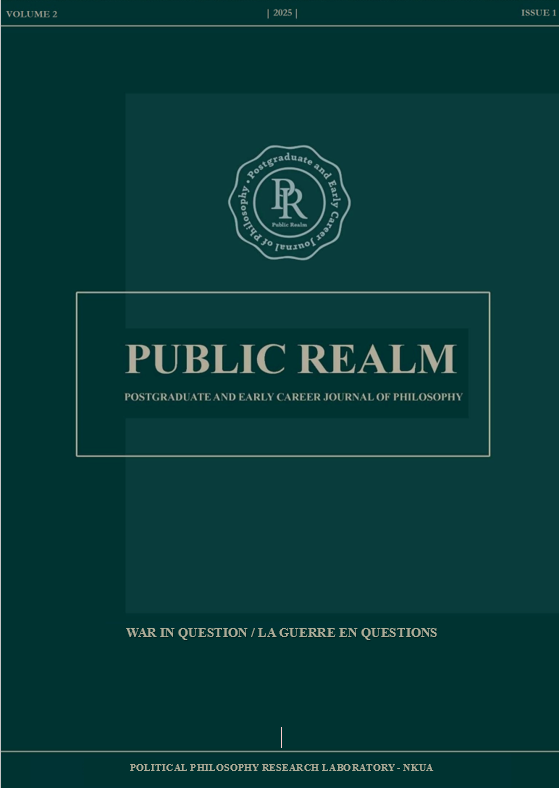War in Marxian and Engelsian Thought: The Crimean War (1853-56) and the “Sixth Power in Europe”

Abstract
The Crimean War (1853-56) attracted Karl Marx and Friedrich Engels’ political interest. The two thinkers came up with a long volume of articles and letters they wrote as dispatches for the American newspaper The New York Tribune. I tap into the said corpus to glean past perspectives on a modern war as a major geopolitical phenomenon involving three Great Powers —namely England, France and Russia— and the crumbling Ottoman Empire, and directly impinging upon the post-Vienna Congress established European socio-political order. I argue, based on Marx and Engels’ commentaries, that in the Marxian philosophical constellation, war is conceptualised and projected as a harbinger of a pan-European proletarian revolution. As a “sixth power in Europe” that could hold sway over —foremost by precipitating— the course of events which would usher in a radical social transformation. Besides, the under-theorisation of modern war in the Marxian and Marxist intellectual traditions, the reasons behind it, and Étienne Balibar’s distinct theoretical approach to the coupling of war and revolution are also presented and discussed.
Article Details
- How to Cite
-
Papadopoulos, N. (2025). War in Marxian and Engelsian Thought: The Crimean War (1853-56) and the “Sixth Power in Europe”. Public Realm. Postgraduate and Early Career Journal of Political Philosophy, 2, 45–64. https://doi.org/10.12681/pr.v2.35539
- Section
- Articles
Authors who publish with this journal agree to the following terms:
Authors retain copyright and grant the journal right of first publication with the work simultaneously licensed under a Creative Commons Attribution Non-Commercial International License (CC BY-NC 4.0) that allows others to share the work with an acknowledgement of the work's authorship and initial publication in this journal.
Authors are able to enter into separate, additional contractual arrangements for the non-exclusive distribution of the journal's published version of the work (e.g. post it to an institutional repository or publish it in a book), with an acknowledgement of its initial publication in this journal.
Authors are permitted and encouraged to post their work online (preferably in institutional repositories or on their website) prior to and during the submission process, as it can lead to productive exchanges, as well as earlier and greater citation of published work.


